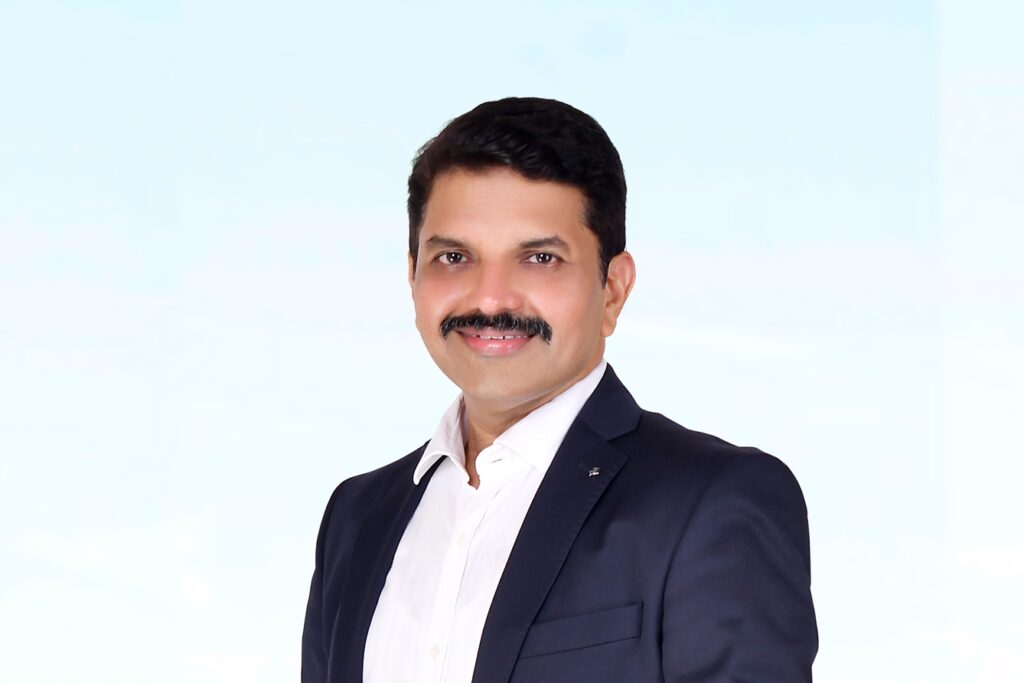Aashish Narkar, the head of IT security at TCS, believes that the only way to prepare for the future is to invest in security solutions in the present.
“Technology is a vehicle for making better changes for tomorrow. We will see a hybrid future and companies that adopt integrated security solutions will succeed in making an impact,” he said at Microsoft Future Ready, a two-day event which saw industry leaders share their thoughts about preparing organizations for the future.
The work his team does at TCS, the world’s largest IT services company, has become more critical since the onset of the pandemic with cyberattacks increasing in complexity, frequency, and intensity.
“Today, adversaries on the other side are extremely prepared and tech savvy and they use the advanced technologies to attack companies. So, companies need to be equally prepared,” he said.
Edited excerpts follow:
What are some of the top changes and challenges being witnessed in the security landscape?
During the pandemic almost every organization’s IT department was tasked with enabling secure remote working for the entire workforce within few weeks of time which diminished the security perimeter. Most organizations earlier had only 20 to 30% of capacity and capabilities for remote working, but they were required to scale those rapidly.
With remote work, every user’s device became a perimeter, and their digital identities became extremely critical before providing access to enterprise resources. This led to an exponential rise in the attack surface leading to opportunistic and targeted attacks.
Another challenge was to maintain the required level of security hygiene with respect to patching, vulnerability management and compliance. Technology architecture built for yesteryears suddenly became irrelevant and ineffective.
Surviving the new normal required radical thinking and rapid adoption of key transformative, next generation security services. Those who invested in required technologies proactively were better off transitioning to new state however those who were not prepared enough would have struggled for sure.
How is the role of regulators changing the way companies operate today?
There are different regulations being enforced across the world which are extremely demanding. The onus is completely on companies to handle data from a privacy perspective, protecting that data and, ensuring that it does not fall into the wrong hands.
Privacy related regulations are guiding major security decisions. As part of strategic implementation, companies must keep a close watch on the number of privacy related changes. Other regulations which impact their business models also need to be considered and companies must align their security deployments and policies to bridge all the gaps which can become an issue (in the region they operate in).
At the same time, a company’s success really boils down to the technology adoptions that they have either inherited or are planning in future. Majority of these decisions are driven by the platform approach rather than selecting point or standalone solutions. Today, risks and threats are evolving rapidly, so companies must be cautious and take cognizance. They need to align their investments in the right technologies or platforms, which provide threat-based detection and rapid response capabilities.
What are some integrated security solutions that can be applied through the length and breadth of an organization?
Our past learnings have shown that the best of the breed solutions alone are usually short lived. They often run out of steam as they are not designed to offer breadth and they cannot evolve into highly integrated platforms. Today, adversaries on the other side are extremely prepared and tech savvy and they use advanced technologies to attack companies. So, companies need to be equally prepared.
Solutions like machine-to-machine integration, ability to tap into global threat feeds, leveraging artificial intelligence and machine learning to process billions of signals every hour are essential for larger organizations. On-premise and legacy solutions fail miserably, so companies must choose platforms that offer integration of various security capabilities, single plane of glass for end-to-end visibility, and built-in automated response preferably backed by Managed (Detection and Threat) Hunting, which entails proactively identifying threats that evade existing security controls by searching across networks and endpoints.
Why did TCS choose to invest in Microsoft’s technologies?
Most of the leaders have understood the gravity of the issue and started preparing themselves and their organization for the challenge. During the pandemic, TCS made timely investments in critical technologies, including Microsoft platforms, which really helped the company sail through pandemic-induced lockdowns.
We were able to mobilize our large workforce within two to three weeks. Since then, we maintained the momentum and built on the early success to make sure we protect valuable information assets in the future.
Our investments in the Microsoft platform helped us address security, compliance, and governance requirements – which are extremely critical for the hybrid workplace.
Azure Active Directory (AAD) enabled our Zero Trust journey starting with multifactor authentication which has now matured into risk based conditional access. Capabilities like device registration for secured access to enterprise application, AAD password protection to enforce strong passwords on cloud, every access evaluated via conditional access have helped us enforce our security controls. All these are further enhanced by evaluating the sign-in risk through risk based conditional access.
Microsoft Endpoint Manager which combines services including Microsoft Intune, Configuration Manager, Desktop Analytics, co-management, and Windows Autopilot enabled us to streamline our operations into modern management and deliver a seamless modern workplace experience. With modern device management we could effectively manage, maintain, and improve compliance for thousands of devices operating remotely. This helped us not only to maintain customer compliance commitment but strengthen our security posture.
Azure Information Protection enabled us to easily discover, classify and protect business confidential documents and emails.
The Core eDiscovery capabilities in M365 provide us the ability to search and put content on legal hold for further review.

